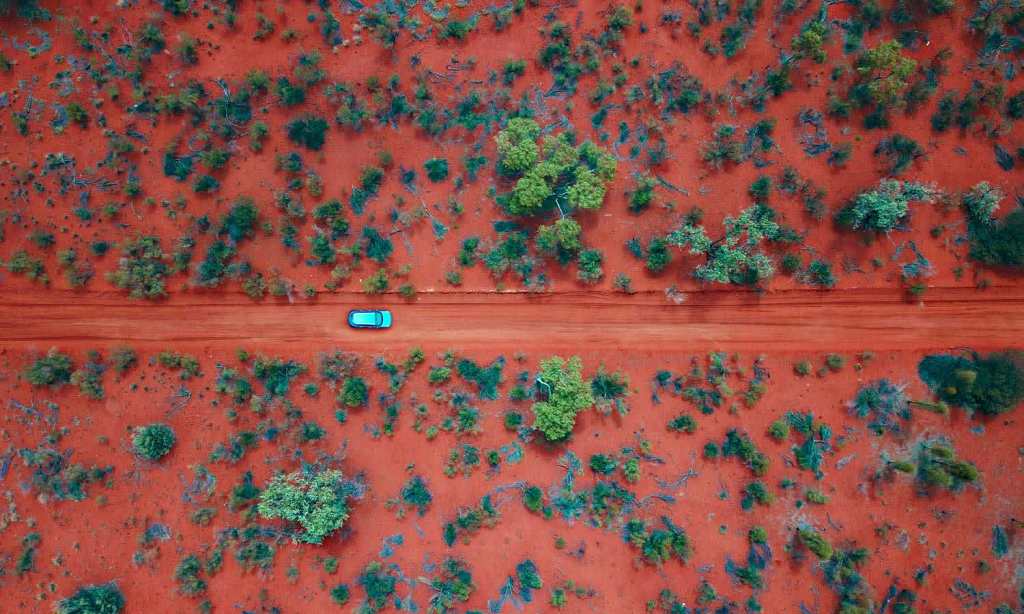We’ve partnered with Flight Centre to bring you expert tips in travel.
Travel is one of life’s single greatest pleasures. Exploring a new destination opens our eyes to unfamiliar surroundings, cultures, and experiences, and the opportunity to witness and appreciate the world in a different way to how we do so at home is surely priceless. And yet, when people think about travelling sustainably, their minds wander not to tiny homes and treks among nature, but to the extra dollars conscious travel could add to their carts.
But the good news is, travel and sustainability go hand-in-hand, and if you know a few simple tricks, like these from the travel experts at Flight Centre, you could even save money and enrich your holiday experience at the same time.
It all comes down to respect; respect for the environment, respect for the locals, respect for your future. Below, we’re sharing the expert secrets to travelling sustainably, even while on a budget.
Go slow
Slow travel is an emerging and popular new travel trend for a number of reasons. First, Australians have found themselves with more time on their hands after accruing a bank of annual leave in 2020, during which time we collectively learned to appreciate the little moments, and take life at a somewhat slower pace. That’s reason number two.
As a result, we’re seeing a boom in slow travel, which refers to longer holidays spent visiting fewer destinations along the way, as opposed to 10 countries in 10 days. For some, this means taking a trip on foot — setting off into the national park with a tent and camping along the coastline for a whole week. A pretty low-impact and affordable way to travel, if you ask us!
For others, this could mean embarking on a cross-country train trip or weeks-long road trip around the state. You may holiday for longer, but in the absence of flying, you’ll save out-of-sight on expensive plane tickets and carbon emissions. In the business, we call that a win-win.
Visit second cities
London, Paris, Tokyo, New York… chances are you’ve visited at least one and likely had an incredible time, but as we rekindle our love for city travel in a post-pandemic world, we’re planning to take a different approach, by visiting ‘second cities’ instead.
Second cities refer to those cities and towns that offer a similar experience to that of a capital, but in a lesser-explored pocket of the same country. It’s the Newcastle to Sydney; the Manchester to London; the Lyon to Paris. The visitor to a second city will enjoy the same cuisine, the same cultural experiences, and the same overall vibes, but will save in more ways than one.
First, by opting for an alternative city, you’ll help reduce the impacts of overtoursim, which we know creates negative environmental and social impacts, including pollution and traffic. And second, you’ll save big on accommodation costs while simultaneously supporting smaller tourism operators.

Travel off-peak
Sure, the school holidays are a great time to travel, but you know what else is a great time to travel? Any other day of the year! It’s not like you don’t have the annual leave just sitting there, so if you’re looking to travel sustainably and save a few bucks, then we recommend booking off-peak.
The peak months see accommodation costs and flight fares climb as a result of high competition and demand, but taking a trip in the quieter months means you can often score great package deals, discounts on hotels, and airfares at significantly lower prices.
Travelling in off-peak periods means you’ll once again reduce the impacts of overtourism, and with all that extra cash in your pocket, you’ll feel more inclined to tick that box at the checkout to offset your carbon emissions for a couple of extra dollars.
Where are you planning on heading next?
Read more stories from The Latch and subscribe to our email newsletter.







